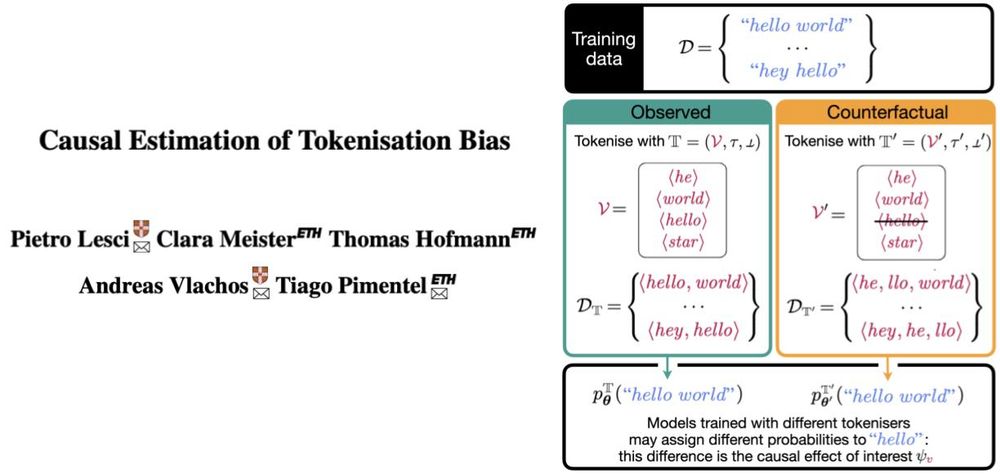
We prove optimal tokenization is NP-hard on bounded alphabets (like bytes)—even unary for direct tokenization!
Big thanks @tpimentel.bsky.social, @philipwitti.bsky.social & Dennis Komm for the mentorship! Best birthday gift. 🎂
arxiv.org/abs/2511.15709

We prove optimal tokenization is NP-hard on bounded alphabets (like bytes)—even unary for direct tokenization!
Big thanks @tpimentel.bsky.social, @philipwitti.bsky.social & Dennis Komm for the mentorship! Best birthday gift. 🎂
arxiv.org/abs/2511.15709

Speakers: @jessicahullman.bsky.social @doloresromerom.bsky.social @tpimentel.bsky.social
Call for Contributions: Oct 15

Speakers: @jessicahullman.bsky.social @doloresromerom.bsky.social @tpimentel.bsky.social
Call for Contributions: Oct 15
(And if you’re at COLM, come hear about it on Tuesday – sessions Spotlight 2 & Poster 2)!

(And if you’re at COLM, come hear about it on Tuesday – sessions Spotlight 2 & Poster 2)!
arxiv.org/abs/2507.01234
Turns out there's an easy fix🧵
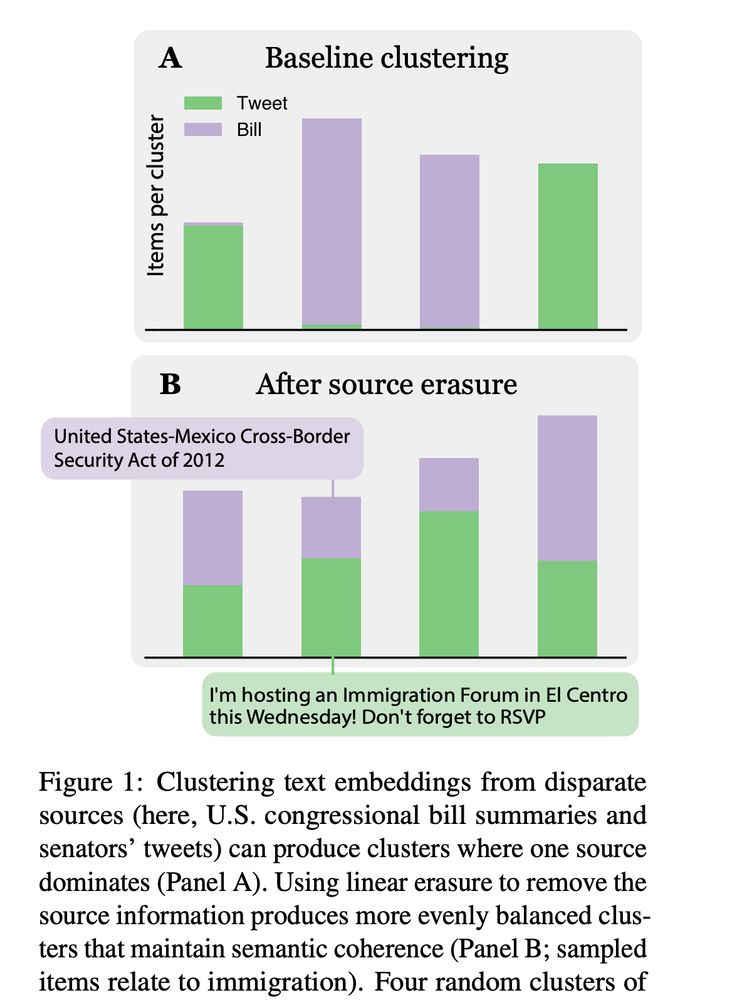
arxiv.org/abs/2507.01234

Main takeaway: In mechanistic interpretability, we need assumptions about how DNNs encode concepts in their representations (eg, the linear representation hypothesis). Without them, we can claim any DNN implements any algorithm!

Main takeaway: In mechanistic interpretability, we need assumptions about how DNNs encode concepts in their representations (eg, the linear representation hypothesis). Without them, we can claim any DNN implements any algorithm!
With the amazing: @philipwitti.bsky.social, @gregorbachmann.bsky.social and @wegotlieb.bsky.social,
@cuiding.bsky.social, Giovanni Acampa, @alexwarstadt.bsky.social, @tamaregev.bsky.social
With the amazing: @philipwitti.bsky.social, @gregorbachmann.bsky.social and @wegotlieb.bsky.social,
@cuiding.bsky.social, Giovanni Acampa, @alexwarstadt.bsky.social, @tamaregev.bsky.social

New paper + @philipwitti.bsky.social
@gregorbachmann.bsky.social :) arxiv.org/abs/2412.15210

Let’s talk about it and why it matters👇
@aclmeeting.bsky.social #ACL2025 #NLProc
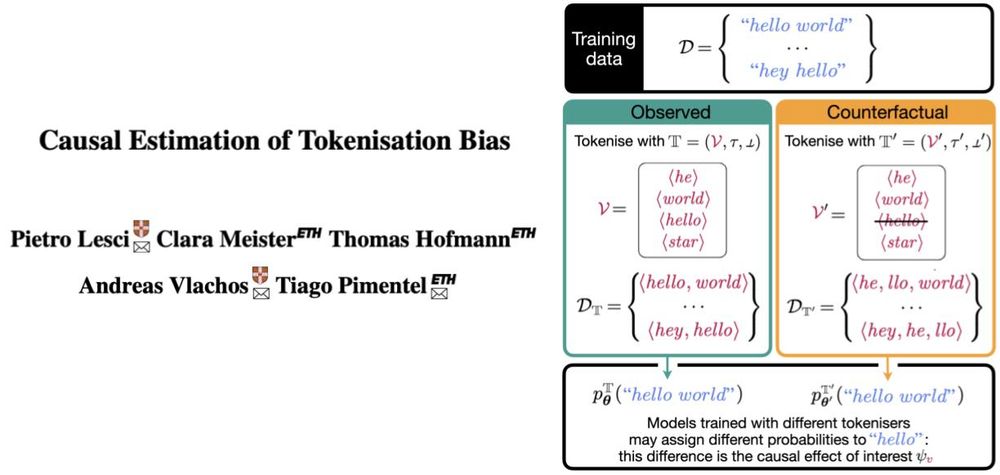


Let’s talk about it and why it matters👇
@aclmeeting.bsky.social #ACL2025 #NLProc

Let’s talk about it and why it matters👇
@aclmeeting.bsky.social #ACL2025 #NLProc
1. Undry
2. Dry
1. Undry
2. Dry
Definitely an approach that more papers talking about effects can incorporate to better clarify what the phenomenon they are studying.

Definitely an approach that more papers talking about effects can incorporate to better clarify what the phenomenon they are studying.
* Text generation: tokenisation bias ⇒ length bias 🤯
* Psycholinguistics: tokenisation bias ⇒ systematically biased surprisal estimates 🫠
* Interpretability: tokenisation bias ⇒ biased logits 🤔

* Text generation: tokenisation bias ⇒ length bias 🤯
* Psycholinguistics: tokenisation bias ⇒ systematically biased surprisal estimates 🫠
* Interpretability: tokenisation bias ⇒ biased logits 🤔

github.com/tpimentelms/...

github.com/tpimentelms/...
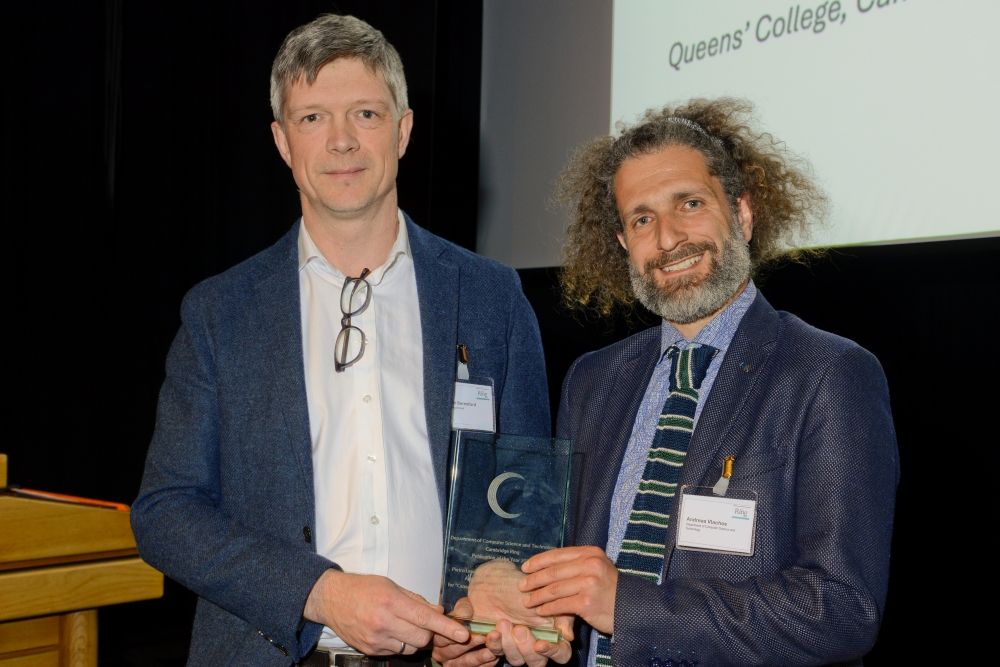

I thank my amazing co-authors Clara Meister, Thomas Hofmann, @tpimentel.bsky.social, and my great advisor and co-author @andreasvlachos.bsky.social!

I thank my amazing co-authors Clara Meister, Thomas Hofmann, @tpimentel.bsky.social, and my great advisor and co-author @andreasvlachos.bsky.social!
"On Linear Representations and Pretraining Data Frequency in Language Models":
We provide an explanation for when & why linear representations form in large (or small) language models.
Led by @jackmerullo.bsky.social, w/ @nlpnoah.bsky.social & @sarah-nlp.bsky.social
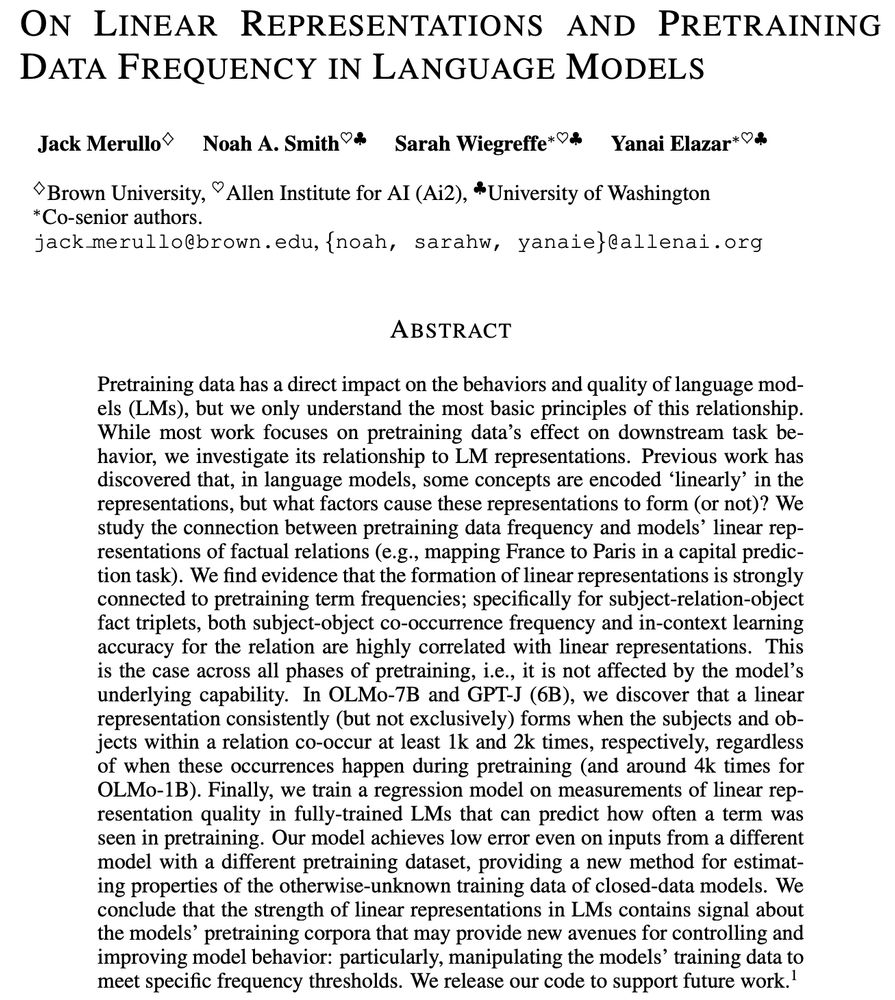
"On Linear Representations and Pretraining Data Frequency in Language Models":
We provide an explanation for when & why linear representations form in large (or small) language models.
Led by @jackmerullo.bsky.social, w/ @nlpnoah.bsky.social & @sarah-nlp.bsky.social


